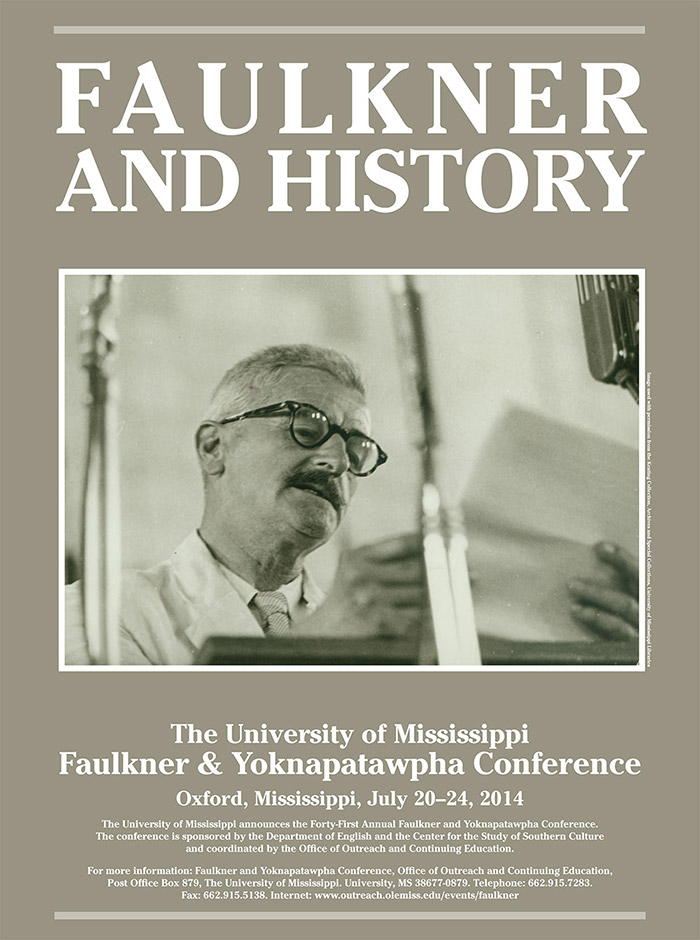
Torture, Southern Violence, and Faulkner in Context
Location
Nutt Auditorium
Start Date
21-7-2014 2:00 PM
Description
Buried in Light in August is a brief and easily overlooked account of police torture. In a cryptic novel replete with murder, a threatened lynching, and castration, the interlude of police torture fades into the background. It was a piece with the thread of violence in both Faulkner’s oeuvre. But Faulkner’s exploration of police torture was much more than a reworking of familiar tropes; it was decidedly rooted in the historical moment in which he wrote. His incorporation of and attention to violence was evidence of his modernist literary sensibilities. It also was a reflection of the evolving concern about both torture and lynching in the modern United States. Light in August, in short, is more than a testament to Faulkner’s acute interest in and grasp of his region’s history, it also suggests Faulkner’s sensitivity to contemporary anxieties.
Relational Format
Conference proceeding
Recommended Citation
Brundage, W. Fitzhugh, "Torture, Southern Violence, and Faulkner in Context" (2014). Faulkner and Yoknapatawpha Conference. 11.
https://egrove.olemiss.edu/fy/2014/schedule/11
Torture, Southern Violence, and Faulkner in Context
Nutt Auditorium
Buried in Light in August is a brief and easily overlooked account of police torture. In a cryptic novel replete with murder, a threatened lynching, and castration, the interlude of police torture fades into the background. It was a piece with the thread of violence in both Faulkner’s oeuvre. But Faulkner’s exploration of police torture was much more than a reworking of familiar tropes; it was decidedly rooted in the historical moment in which he wrote. His incorporation of and attention to violence was evidence of his modernist literary sensibilities. It also was a reflection of the evolving concern about both torture and lynching in the modern United States. Light in August, in short, is more than a testament to Faulkner’s acute interest in and grasp of his region’s history, it also suggests Faulkner’s sensitivity to contemporary anxieties.

